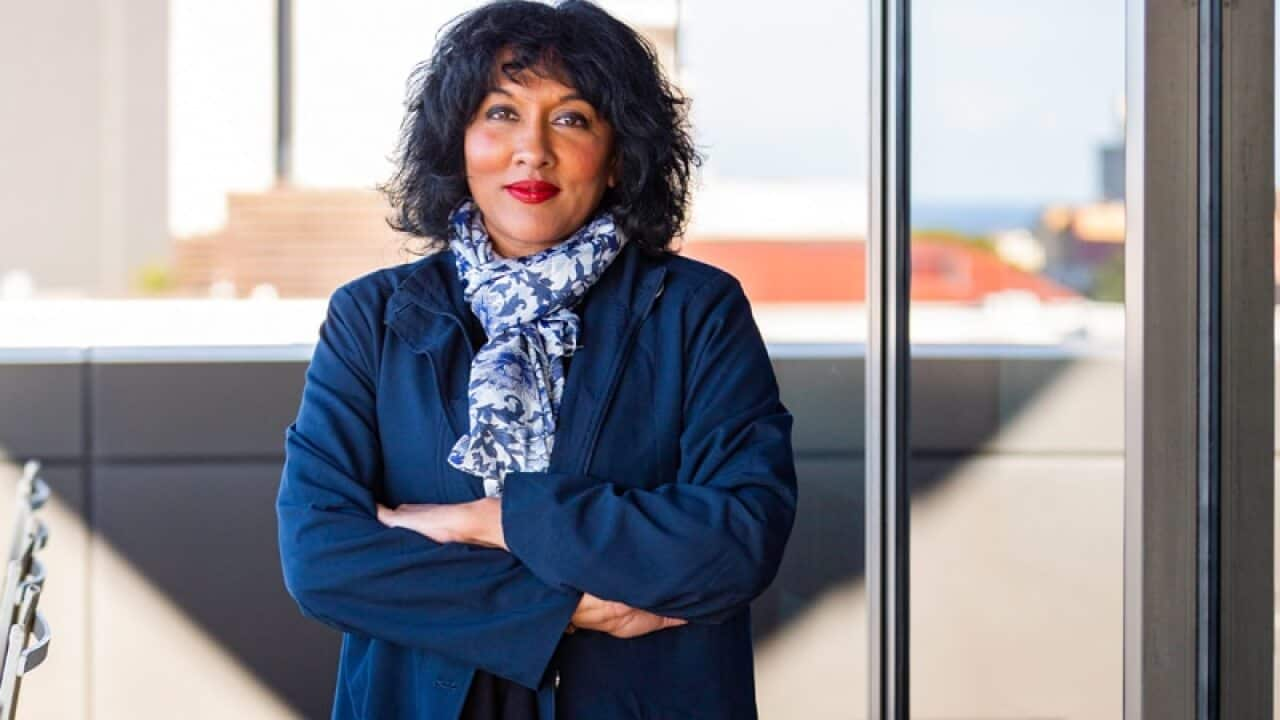This article contains references to sexual assault.
Australian scientists who have spoken to the media about COVID-19 have described the trolling and abuse they've experienced during the pandemic, leading some to question future appearances.
Around one in five experts surveyed by the Australian Science Media Centre (AusSMC) reported death threats, threats of physical or sexual violence after speaking out, according to findings published on Thursday.
Of the 50 scientists who responded to the survey, 31 reported some level of trolling.
An international poll by the Nature journal found a higher proportion of negative experiences among a larger group of scientists in the United Kingdom, Germany, Canada, Taiwan and New Zealand. Fifteen per cent reported death threats, while 22 per cent said they had received threats of physical or sexual violence.
'Extraordinary personal attacks'
Professor Raina MacIntyre is one of those academics. The high-profile scientist, who leads the Biosecurity Research Program at the UNSW Medicine's Kirby Insitute, said trolling can take place on social media or through mainstream media.
"I have had some extraordinary personal attacks against me in media pieces, the likes of which I have never seen directed at white men," she said.
"Racism and misogyny seem to be a factor."
She said trolling is common and can be organised around specific agendas "to silence and discredit anyone who exposes the truth".
"Classic tactics are used, like repeating a lie over and over. The pandemic has seen an anti-science agenda become mainstream, with themes such as anti-vaccination [of children], anti-masking and conflation of all public health measures with lockdown," she said.
Professor MacIntyre said the "saddest" trolling came from doctors and other health professionals.
"Some may be driven by an agenda, but others just seem to have been broken by the pandemic, lost their bearings and sense of professionalism," she said.
"They band together like schoolyard bullies and act like bullies and stalkers."
Gideon Meyerowitz-Katz, an epidemiologist from the University of Wollongong, said trolling and harassment has been a "real problem" during the pandemic.
"I get regular anti-Semitic hate online, occasional death threats, and a load of the expected nasty lies about myself posted everywhere just for discussing issues in certain research areas," he said.
"And, frankly, as a white man, I’m far luckier than some of my colleagues, who receive orders of magnitude more hate than I do.”
'The abuse has made them think twice'
The AusSMC's Lyndal Byford said scientists were being abused "simply for trying to help us all wrap our heads around COVID-19".
"During the pandemic, many scientists became celebrities, appearing regularly on our TV screens, radios and in our newsfeeds. They helped all of us understand this awful virus," Ms Byford said.
"But for some, the abuse they received for this public service has made them think twice about appearing in the media again."
Around 40 per cent of Australian scientists who responded and 60 per cent of international scientists said the trolling and personal attacks have impacted their willingness to speak to media in future.
Over 30 per cent of Australian respondents said it has had emotional and psychological impacts.
Professor Brendan Crabb, Burnet Institute CEO, said his main concern beyond the mental health impacts is that "we just stop".
"I am a little ashamed to admit that I already say no to many requests for interview for this reason and engage less in social media than I would like to," he said.
"Debating robustly on intellectual grounds is a sport we enjoy, indeed are energised by. The type of arguments that scientists face mostly in relation to COVID-19 bears no resemblance to that. It's simply bullying abuse."
Professor Margaret Hellard, deputy director at the Burnet Institute, said she decided to report one particularly threatening email to police earlier this year to "make a stand" on behalf of younger female researchers.
"When talking with younger female staff, a number said they were reluctant to post or put information online or to engage in discussions/debate in the press due to the trolling that immediately follows and feeling threatened. For me, this was a terrible thing," she said.
"In the same way that domestic abuse and violence was ignored as being unimportant for many years, abuse and threats on social media are similarly dismissed, but they can be very impactful on people’s lives in many different ways.
"For young women, it is particularly hard.”
The AusSMC says it hopes to develop training materials and resources to better prepare scientists to deal with trolling and abuse.
Readers seeking support with mental health can contact Beyond Blue on 1300 22 4636. More information is available at . supports people from culturally and linguistically diverse backgrounds.











